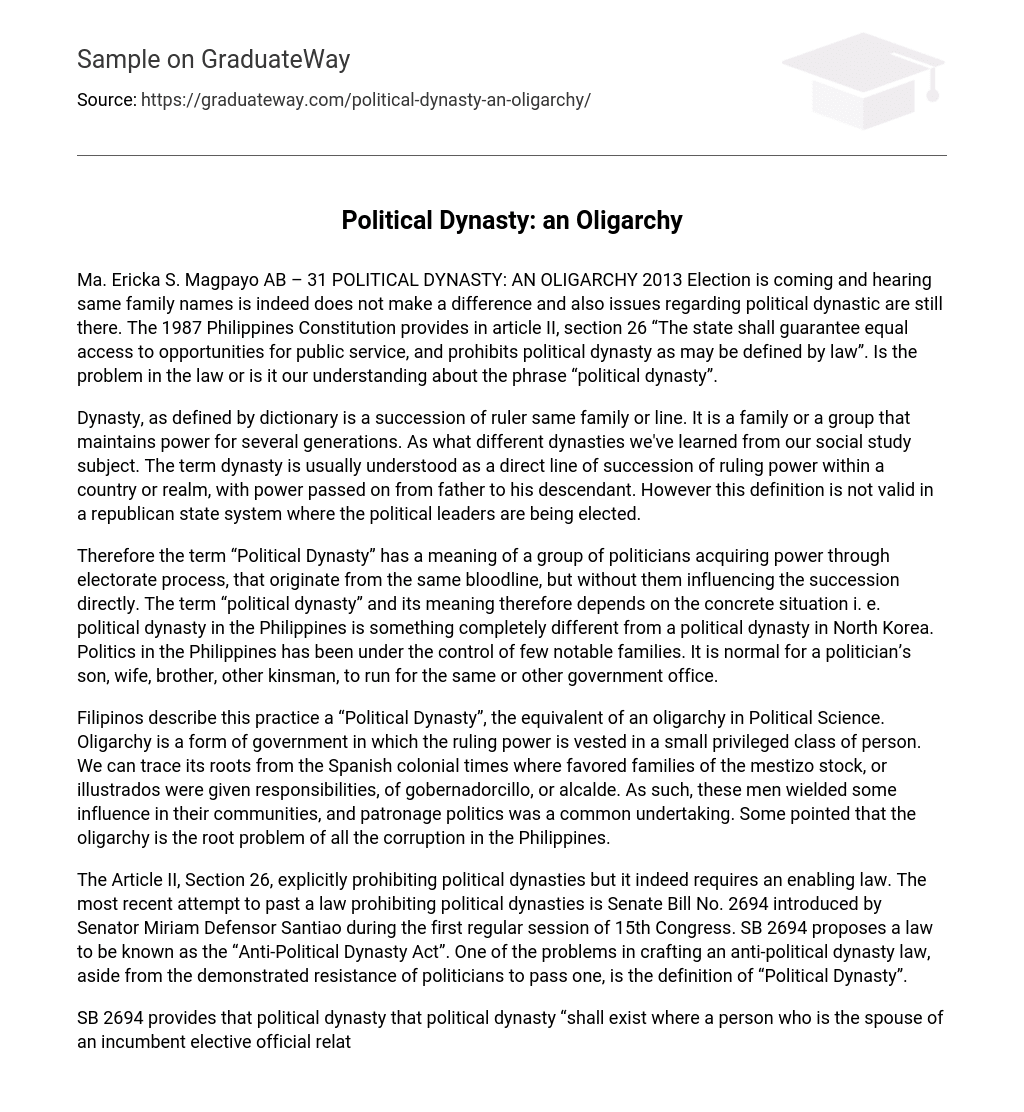Election is coming and hearing same family names is indeed does not make a difference and also issues regarding political dynastic are still there. The 1987 Philippines Constitution provides in article II, section 26 “The state shall guarantee equal access to opportunities for public service, and prohibits political dynasty as may be defined by law”. Is the problem in the law or is it our understanding about the phrase “political dynasty”.
Dynasty, as defined by dictionary is a succession of ruler same family or line. It is a family or a group that maintains power for several generations. As what different dynasties we’ve learned from our social study subject. The term dynasty is usually understood as a direct line of succession of ruling power within a country or realm, with power passed on from father to his descendant. However this definition is not valid in a republican state system where the political leaders are being elected.
Therefore the term “Political Dynasty” has a meaning of a group of politicians acquiring power through electorate process, that originate from the same bloodline, but without them influencing the succession directly. The term “political dynasty” and its meaning therefore depends on the concrete situation i. e. political dynasty in the Philippines is something completely different from a political dynasty in North Korea. Politics in the Philippines has been under the control of few notable families. It is normal for a politician’s son, wife, brother, other kinsman, to run for the same or other government office.
Filipinos describe this practice a “Political Dynasty”, the equivalent of an oligarchy in Political Science. Oligarchy is a form of government in which the ruling power is vested in a small privileged class of person. We can trace its roots from the Spanish colonial times where favored families of the mestizo stock, or illustrados were given responsibilities, of gobernadorcillo, or alcalde. As such, these men wielded some influence in their communities, and patronage politics was a common undertaking. Some pointed that the oligarchy is the root problem of all the corruption in the Philippines.
The Article II, Section 26, explicitly prohibiting political dynasties but it indeed requires an enabling law. The most recent attempt to past a law prohibiting political dynasties is Senate Bill No. 2694 introduced by Senator Miriam Defensor Santiao during the first regular session of 15th Congress. SB 2694 proposes a law to be known as the “Anti-Political Dynasty Act”. One of the problems in crafting an anti-political dynasty law, aside from the demonstrated resistance of politicians to pass one, is the definition of “Political Dynasty”.
SB 2694 provides that political dynasty that political dynasty “shall exist where a person who is the spouse of an incumbent elective official relative within the second civil degree of consanguinity of affinity of an incumbent elective official holds or run on elective office simultaneously the incumbent elective official within the same province occupies the same office e immediately after the term of office of the incumbent official. It shall also deemed exist where two or more persons who are related to an incumbent elective official.
In this bill the characterization of political dynasty includes term/concepts that require further definition. Regarding this issue, I believe that Political Dynsasty is the root problem of all corruption in the Philippines like oligarchy that often resembles as plutocracy or the the government by the very wealth. Political dynasties is viewed as tending to become corrupt or tyrannical a belief that has been supported by history. Therefore this political dynasty in the Philippines should be stop, but the question is how?





